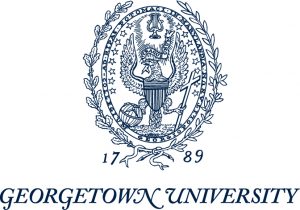 The week at Retraction Watch featured commentary on yet another paper claiming a link between autism and vaccines, a welcome useful retraction notice, and a rewrite of a paper that influenced car seat guidelines. Here’s what was happening elsewhere: Continue reading Weekend reads: Weaponized plagiarism; bias against low-income country research; the uncited papers
The week at Retraction Watch featured commentary on yet another paper claiming a link between autism and vaccines, a welcome useful retraction notice, and a rewrite of a paper that influenced car seat guidelines. Here’s what was happening elsewhere: Continue reading Weekend reads: Weaponized plagiarism; bias against low-income country research; the uncited papers
Author: Ivan Oransky
“Utterly awful:” David Gorski weighs in on yet another paper linking vaccines and autism

Retraction Watch readers may be forgiven for thinking that there has been at least a small uptick in the papers that claim to link autism and vaccines, and yet tend to raise more questions than they answer. Sometimes, they are retracted. See here, here and here, for example. We talk to David Gorski, well known for his fights against pseudoscience, about the most recent example.
Retraction Watch (RW): You describe a recent paper reporting high levels of aluminum in the brains of people with autism as “utterly awful.” What are your main criticisms of the paper? Continue reading “Utterly awful:” David Gorski weighs in on yet another paper linking vaccines and autism
Weekend reads: Peer review “ineffective and unworthy;” science a “profiteering enterprise;” Beall’s boss speaks
 The week at Retraction Watch featured a praiseworthy retraction by a Nobel laureate, a finding of research misconduct in a much-watched case involving fish and microplastics, and death threats against a journalist reporting on a politician’s plagiarism. Here’s what was happening elsewhere: Continue reading Weekend reads: Peer review “ineffective and unworthy;” science a “profiteering enterprise;” Beall’s boss speaks
The week at Retraction Watch featured a praiseworthy retraction by a Nobel laureate, a finding of research misconduct in a much-watched case involving fish and microplastics, and death threats against a journalist reporting on a politician’s plagiarism. Here’s what was happening elsewhere: Continue reading Weekend reads: Peer review “ineffective and unworthy;” science a “profiteering enterprise;” Beall’s boss speaks
Weekend reads: Problems in studies of gender; when scholarship is a crime; a journal about Mark Zuckerberg photos
 The week at Retraction Watch featured a call to make peer reviews public, lots of news about Cornell food researcher Brian Wansink, and a request by the U.S. NIH that the researchers it funds don’t publish in bad journals. Here’s what was happening elsewhere: Continue reading Weekend reads: Problems in studies of gender; when scholarship is a crime; a journal about Mark Zuckerberg photos
The week at Retraction Watch featured a call to make peer reviews public, lots of news about Cornell food researcher Brian Wansink, and a request by the U.S. NIH that the researchers it funds don’t publish in bad journals. Here’s what was happening elsewhere: Continue reading Weekend reads: Problems in studies of gender; when scholarship is a crime; a journal about Mark Zuckerberg photos
Former Emory, Georgetown postdoc falsified cancer research data: ORI
 A former postdoc at Emory and Georgetown Universities falsified data in manuscripts and a grant application to the U.S. National Institutes of Health, according to the Office of Research Integrity (ORI) at the U.S. Department of Health and Human Services.
A former postdoc at Emory and Georgetown Universities falsified data in manuscripts and a grant application to the U.S. National Institutes of Health, according to the Office of Research Integrity (ORI) at the U.S. Department of Health and Human Services.
Mahandranauth Chetram committed misconduct while at Georgetown, the ORI said in a finding released today Continue reading Former Emory, Georgetown postdoc falsified cancer research data: ORI
Weekend reads: Clinical trials in hotel rooms; dressing as a pirate; reducing replication-related stress
 The week at Retraction Watch featured the temporary removal of the director of the U.S. HHS’ Office of Research Integrity, a mass resignation of an journal’s editorial board, and a court injunction against OMICS. Here’s what was happening elsewhere: Continue reading Weekend reads: Clinical trials in hotel rooms; dressing as a pirate; reducing replication-related stress
The week at Retraction Watch featured the temporary removal of the director of the U.S. HHS’ Office of Research Integrity, a mass resignation of an journal’s editorial board, and a court injunction against OMICS. Here’s what was happening elsewhere: Continue reading Weekend reads: Clinical trials in hotel rooms; dressing as a pirate; reducing replication-related stress
Weekend reads: Ethical issues could cost university millions in funding; Stolen bone raises questions; Ingelfinger rides again
 The week at Retraction Watch featured a the story of how a nonexistent paper earned 400 ciations, a lawsuit filed against a journal for publishing criticism, and the retraction and replacement of a paper by a group of anti-vaccine advocates. Here’s what was happening elsewhere: Continue reading Weekend reads: Ethical issues could cost university millions in funding; Stolen bone raises questions; Ingelfinger rides again
The week at Retraction Watch featured a the story of how a nonexistent paper earned 400 ciations, a lawsuit filed against a journal for publishing criticism, and the retraction and replacement of a paper by a group of anti-vaccine advocates. Here’s what was happening elsewhere: Continue reading Weekend reads: Ethical issues could cost university millions in funding; Stolen bone raises questions; Ingelfinger rides again
Weekend reads: Publishing’s day of reckoning; an Impact Factor discount — on lunch; a prize for negative results
 The week at Retraction Watch featured mass resignations from a journal’s editorial board, software that writes papers for you, and a retracted retraction. Here’s what was happening elsewhere: Continue reading Weekend reads: Publishing’s day of reckoning; an Impact Factor discount — on lunch; a prize for negative results
The week at Retraction Watch featured mass resignations from a journal’s editorial board, software that writes papers for you, and a retracted retraction. Here’s what was happening elsewhere: Continue reading Weekend reads: Publishing’s day of reckoning; an Impact Factor discount — on lunch; a prize for negative results
Weekend reads: Researcher sues over criticism; how to fire a professor; science by sexual harassers
 The week at Retraction Watch featured a revoked PhD, more news about Paolo Macchiarini, and a head-scratcher about a retraction involving astronauts. Here’s what was happening elsewhere:
The week at Retraction Watch featured a revoked PhD, more news about Paolo Macchiarini, and a head-scratcher about a retraction involving astronauts. Here’s what was happening elsewhere:
Weekend reads: No peer review crisis?; Fake conferences overwhelm real ones; Bullying vs. criticism
 The week at Retraction Watch featured a retraction by a Nobel laureate, the eight excuses journal editors hear in responses to questions about data, and a description of a “disease” that affects many scientists. Here’s what was happening elsewhere: Continue reading Weekend reads: No peer review crisis?; Fake conferences overwhelm real ones; Bullying vs. criticism
The week at Retraction Watch featured a retraction by a Nobel laureate, the eight excuses journal editors hear in responses to questions about data, and a description of a “disease” that affects many scientists. Here’s what was happening elsewhere: Continue reading Weekend reads: No peer review crisis?; Fake conferences overwhelm real ones; Bullying vs. criticism